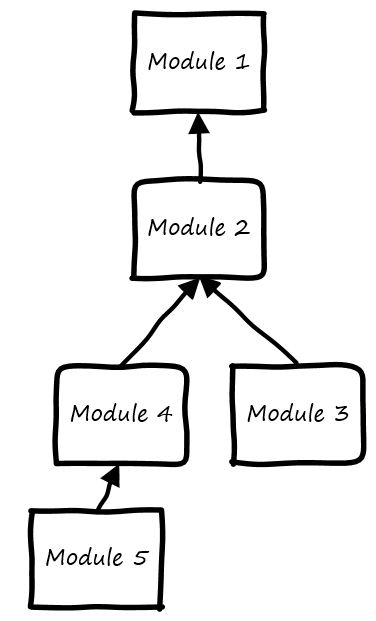Initializable modules without EPiServer
EPiServer initialization modules is a great feature to provide plugin facilities for the hosting application. I find initialization modules pretty handful in cases when you need to initialize some library, configure some stuff or do whatever needed at application start-up. However there are times when you have to develop site without wonderful backup platform that takes all boring boilerplate code away and provides with much awesome stuff and features. Let’s switch to ordinary Asp.Net Mvc application initialization code:
1
2
3
4
5
6
7
8
9
10
11
[assembly: OwinStartupAttribute(typeof(WebApplication1.Startup))]
namespace WebApplication1
{
public partial class Startup
{
public void Configuration(IAppBuilder app)
{
ConfigureAuth(app);
}
}
}
In order to add new steps for initialization you may need to add new method invocation under or above ConfigureAuth(app) method:
1
2
3
4
5
public void Configuration(IAppBuilder app)
{
ConfigureAuth(app);
// OtherSetupMethod();
}
Then you may need to create new Startup class partial fragment that is located under App_Start folder just to follow used conventions in default project template. Tiny place for a small library :)
Initialization Modules
So I took inspiration EPiServer gave and created a small initialization module library that does exactly what it says – you are able to create a initialization modules which will be called during application start-up or at any your preferred time during app life cycle.
So by using InitializationModule library you are able to rewrite user authentication setup in default Asp.Net Mvc template with following code.
1
2
3
4
5
6
7
8
9
10
11
12
[assembly: OwinStartupAttribute(typeof(WebApplication1.Startup))]
namespace WebApplication1
{
public partial class Startup
{
public void Configuration(IAppBuilder app)
{
var process = new ModuleExecutionProcess(app);
var context = process.Execute();
}
}
}
You can now rewrite authentication setup code using initialization modules:
1
2
3
4
5
6
7
8
9
10
11
12
13
14
15
16
17
18
19
namespace WebApplication1
{
public partial class Startup : IInitializableModule
{
private readonly IAppBuilder _app;
public Startup(IAppBuilder app)
{
this._app = app;
}
public void Initialize()
{
// Configure the db context, user manager and signin manager to use a single instance per request
_app.CreatePerOwinContext(ApplicationDbContext.Create);
_app.CreatePerOwinContext(ApplicationUserManager.Create);
_app.CreatePerOwinContext(ApplicationSignInManager.Create);
// …
Taking a look at Global.asacx.cs file content it seems very good candidate for a initialization modules:
1
2
3
4
5
6
7
8
9
10
11
public class MvcApplication : System.Web.HttpApplication
{
protected void Application_Start()
{
AreaRegistration.RegisterAllAreas();
GlobalConfiguration.Configure(WebApiConfig.Register);
FilterConfig.RegisterGlobalFilters(GlobalFilters.Filters);
RouteConfig.RegisterRoutes(RouteTable.Routes);
BundleConfig.RegisterBundles(BundleTable.Bundles);
}
}
Dependencies between modules
Initialization modules provides built-in support for specifying cross-module dependencies. Let’s say we do have following modules:
1
2
3
4
5
6
7
8
9
10
11
12
13
14
15
16
17
18
19
20
21
22
23
24
25
26
27
28
29
30
31
32
33
34
35
36
37
38
public class Module1 : IInitializableModule
{
public void Initialize()
{
}
}
[ModuleDependency(typeof(Module1))]
public class Module2 : IInitializableModule
{
public void Initialize()
{
}
}
[ModuleDependency(typeof(Module2))]
public class Module3 : IInitializableModule
{
public void Initialize()
{
}
}
[ModuleDependency(typeof(Module2))]
public class Module4 : IInitializableModule
{
public void Initialize()
{
}
}
[ModuleDependency(typeof(Module4))]
public class Module5 : IInitializableModule
{
public void Initialize()
{
}
}
Using ModuleDependency attribute you can specify that one module is dependent on others’ module execution result, e.g., Module3 will not be executed before Module2, Module5 before Module4, etc.
Graphically this looks like this:
Engine takes care of proper execution order for the dependent modules. However – it’s defined which module will be executed first – module Module3 or module Module4. If you need to define a specific execution order for the modules on “the same level” – probably they are not on the same level – somebody has dependency on other.
Module resolution
Initialization modules sometimes may depend not only on other modules but they may require something from outer world as well - it’s an ordinary case in enterprise applications – some dependencies injected.
It’s possible to provide module resolution function to InitializationModule library in order to specify how modules are resolved in RRR cycle.
Let’s say in this particular case we are using StructureMap DI container (particular implementation of container does not play any role in this case as library does not care about implementation - power of System.Func).
1
2
var process = new ModuleExecutionProcess(ObjectFactory.Container.GetInstance);
var context = process.Execute();
In this case every discovered module will be resolved using specified function (Func). It may seem a bit of Service locator anti-pattern. But it’s a bit better than creating a conforming container for every DI framework out there.
InitializationModule library is available in nuget.org feed and source code is pushed to GitHub.
[eof]

Comments powered by Disqus.